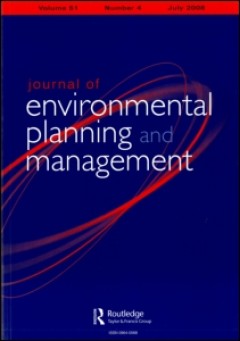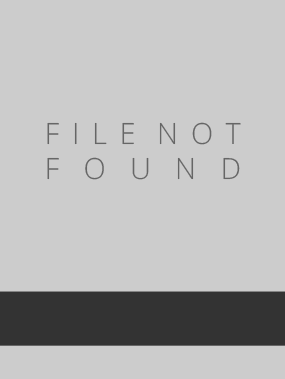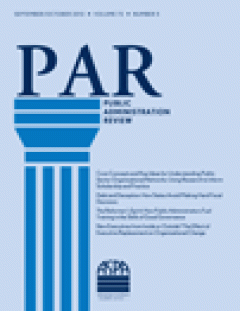Filter by

Territory and energy sustainability: the challenge of renewable energy sources
The issue of energy production is assuming an ever more pivotal role in the most recent international debate on sustainable development. In particular, the development of Renewable Energy Sources (RES) is seen as a great opportunity to achieve sustainability objectives and targets. This consideration reinforces the great debate on the active role of the local dimension in achieving sustainabili…
- Edition
- Volume 53, Issue 4 June 2010 , pages 457 - 472
- ISBN/ISSN
- 09640568
- Collation
- -
- Series Title
- Journal of Environmental Planning and Management
- Call Number
- -

Policy integration strategy and the development of the 'green economy': found…
In several countries, the remarkable development of the 'green economy' in recent years has gone hand in hand with the implementation of strategies of integration (more or less rapid and thorough) of public policies linked to the environment. This policy integration strategy is generally a necessary condition for the encouragement and viable development of new environmental technologies and com…
- Edition
- Volume 53, Issue 4 June 2010 , pages 473 - 490
- ISBN/ISSN
- 09640568
- Collation
- -
- Series Title
- Journal of Environmental Planning and Management
- Call Number
- -

Sustainability and multi-level governance of territories classified as protec…
This paper draws on recent debates on the multi-level governance of sustainable development to approach territories classified as protected areas. Based on original fieldwork carried out in the Parc naturel reacutegional du Morvan, the paper examines the main governance challenges arising from the coexistence of natural areas and various embedded politico-administrative territories that have fl…
- Edition
- Volume 53, Issue 4 June 2010 , pages 491 - 509
- ISBN/ISSN
- 09640568
- Collation
- -
- Series Title
- Journal of Environmental Planning and Management
- Call Number
- -

Traditional knowledge and biocultural diversity: learning from tribal communi…
This paper presents a synthesis of grassroots activities designed to promote the learning and conservation of traditional knowledge and related biocultural resources among Adi, Monpa and Khasi tribes of northeast India. The results indicate that the participation of knowledge holders in various village level activities can enhance the promotion of traditional practices, learning of knowledge an…
- Edition
- Volume 53, Issue 4 June 2010 , pages 511 - 533
- ISBN/ISSN
- 09640568
- Collation
- -
- Series Title
- Journal of Environmental Planning and Management
- Call Number
- -

A BIT Is Better Than a Lot: Bilateral Investment Treaties and Preferential Tr…
The landscape of the global economy is dotted with institutions that regulate investment and trade. In recent years, the number of bilateral investment treaties (bits) and preferential trade agreements (ptas), in particular, has grown at a torrid pace; practically every country is a member of at least one�if not many�of these institutions. For all the scholarly attention that these institutio…
- Edition
- Vol. 62, No. 1 January 2010. pp. 1-42
- ISBN/ISSN
- 00438871
- Collation
- -
- Series Title
- WORLD POLITICS
- Call Number
- -

Defeating Dictators: Electoral Stability and Change in Competitive Authoritar…
What explains electoral stability and change in competitive authoritarian regimes? This article addresses this question by comparing eleven elections�six of which led to continuity in authoritarian rule and five of which led to the victory of the opposition--that took place between 1998 and 2008 in competitive authoritarian regimes countries located in the postcommunist region. Using intervie…
- Edition
- Vol. 62, No. 1 January 2010. pp. 43-86
- ISBN/ISSN
- 00438871
- Collation
- -
- Series Title
- WORLD POLITICS
- Call Number
- -

Why Do Ethnic Groups Rebel? A New Data and Analysis
- Edition
- Vol. 62, No. 1 January 2010. pp. 87-119
- ISBN/ISSN
- 00438871
- Collation
- -
- Series Title
- WORLD POLITICS
- Call Number
- -
- Edition
- Vol. 62, No. 1 January 2010. pp. 87-119
- ISBN/ISSN
- 00438871
- Collation
- -
- Series Title
- WORLD POLITICS
- Call Number
- -

After KKV: The New Methodology of Qualitative Research
This article discusses developments in the field of qualitative methodology since the publication of King, Keohane, and Verba�s (kkv�s) Designing Social Inquiry. Three areas of the new methodology are examined: (1) process tracing and causal-process observations; (2) methods using set theory and logic; and (3) strategies for combining qualitative and quantitative research. In each of these a…
- Edition
- Vol. 62, No. 1 January 2010. pp. 120-147
- ISBN/ISSN
- 00438871
- Collation
- -
- Series Title
- WORLD POLITICS
- Call Number
- -

Studying the State through State Formation
This article seeks to take stock of the insights offered by the fast-growing literature on comparative state formation, which is treated here as a neglected offshoot of the �bringing the state back in� movement of the 1980s. Unlike previous Eurocentric reviews of this literature, this article includes works that range broadly in time and geography. The author focuses particularly on two areas o…
- Edition
- Vol. 62, No. 1 January 2010. pp. 148-175
- ISBN/ISSN
- 00438871
- Collation
- -
- Series Title
- WORLD POLITICS
- Call Number
- -

The Problem of Consumption
One of the biggest challenges for global environmental governance is �the problem of consumption.� The task involves far more than simply influencing what consumers choose, use, and discard. It requires a concerted effort to address the systemic drivers�including advertising, economic growth, technology, income inequality, corporations, population growth, and globalization�that shape the quanti…
- Edition
- Vol. 10, No. 2, May 2010, Pages 1-10
- ISBN/ISSN
- 15263800
- Collation
- -
- Series Title
- Global Environmental Politics
- Call Number
- -

COP-15 in Copenhagen: How the Merging of Movements Left Civil Society Out in …
What happened to non-governmental organizations' participation at the COP-15 round of climate negotiations in Copenhagen? Although the climate regime has been seen as relatively open to civil society, everything changed in Copenhagen and civil society became increasingly disenfranchised. This article discusses the three main forces that led to civil society's disenfranchisement at this round of…
- Edition
- Vol. 10, No. 2, May 2010, Pages 11-17
- ISBN/ISSN
- 15263800
- Collation
- -
- Series Title
- Global Environmental Politics
- Call Number
- -

Inside Copenhagen: The State of Climate Governance
This article clarifies the outcome of the Copenhagen climate conference from the perspective of a government delegate. Access behind closed doors reveals the full extent of the damage. The failure at Copenhagen was worse than our worstcase scenario but should not obscure a bigger and brighter picture. Aggregate climate governance is in healthy condition that contrasts with the plight of multila…
- Edition
- Vol. 10, No. 2, May 2010, Pages 18-24
- ISBN/ISSN
- 15263800
- Collation
- -
- Series Title
- Global Environmental Politics
- Call Number
- -

Public-Private Partnerships for the Earth: Politics and Patterns of Hybrid Au…
The article examines the politics and patterns of public-private partnerships for the environment in the multilateral system. It argues that two kinds of dynamics have contributed to the hybridization of environmental authority at the global level. On one hand, the fragmentation of environmental regimes and the parallel growth of non-state actors have resulted in structural pressures and opport…
- Edition
- Vol. 10, No. 2, May 2010, Pages 25-53
- ISBN/ISSN
- 15263800
- Collation
- -
- Series Title
- Global Environmental Politics
- Call Number
- -

Overlap Management in the World Trade Organization: Secretariat Influence on …
This article builds on recent scholarship that explores the nature of secretariat influence in global governance. By combining data from interviews with WTO delegates and secretariat staff with document analysis, this study examines how the WTO secretariat is shaping trade-environment politics by using its bureaucratic authority to influence overlap management in the WTO. This study argues that…
- Edition
- Vol. 10, No. 2, May 2010, Pages 54-79
- ISBN/ISSN
- 15263800
- Collation
- -
- Series Title
- Global Environmental Politics
- Call Number
- -

Norms, Institutions and Social Learning: An Explanation for Weak Policy Integ…
The United Nations Conference on Environment and Development (UNCED) recognized that sustainable development can only be actualized if environmental norms are integrated into other areas of policy across levels of governance. This article examines the Committee on Trade and Environment of the World Trade Organization (WTO) to answer the question of why actors' efforts to enhance the mutual supp…
- Edition
- Vol. 10, No. 2, May 2010, Pages 80-117
- ISBN/ISSN
- 15263800
- Collation
- -
- Series Title
- Global Environmental Politics
- Call Number
- -

Shifting Boundaries between the Public and Private Sectors: Implications from…
What are the differences between the public and private sectors as well as their interrelationships in light of the recent financial crisis? Has the global economic crisis fundamentally shifted the boundaries between the two sectors? This essay examines the nature and extent of the shift. The authors present an analysis of the Troubled Asset Relief Program (TARP) to highlight the massive transf…
- Edition
- Volume 70 Issue 3, May-June 2010. Pages 349 - 360
- ISBN/ISSN
- 00333352
- Collation
- -
- Series Title
- Public Administration Review
- Call Number
- -

Order Beyond Crisis: Organizing Considerations Across the Public Service Conf…
This article responds to the preceding paper by Stephanie Moulton and Charles Wise, critiquing the dimensions that those authors use as organizing guides in the delivery of public services through public�private institutional configurations, including the evaluation of the Troubled Asset Relief Program (TARP). In this essay, Eva M. Witesman proposes a modification to the framework and provides …
- Edition
- Volume 70 Issue 3, May-June 2010. Pages 361 - 366
- ISBN/ISSN
- 00333352
- Collation
- -
- Series Title
- Public Administration Review
- Call Number
- -

Evaluating Racial Disparities in Hurricane Katrina Relief Using Direct Traile…
Are charges of racial disparities in the Federal Emergency Management Agency's relief efforts in New Orleans following Hurricane Katrina accurate? Limited publicly available data on trailer distribution in New Orleans are compared to an on-site trailer count and to a complete trailer count from aerial photographs of New Orleans. The Lower Ninth Ward in Orleans Parish (98 percent Black prior to …
- Edition
- Volume 70 Issue 3, May-June 2010. Pages 367 - 377
- ISBN/ISSN
- 00333352
- Collation
- -
- Series Title
- Public Administration Review
- Call Number
- -

The Essence of the "Market Army"
Western armies have undergone substantial organizational-cultural transformations since the end of the Cold War. Two main themes have been suggested to describe these transformations: postmodernity and post-Fordism. This article analyzes these profound shifts. The author portrays the new Western army as a "market army," distancing itself from the "citizen army," and envisions a continuum betwee…
- Edition
- Volume 70 Issue 3, May-June 2010. Pages 378 - 389
- ISBN/ISSN
- 00333352
- Collation
- -
- Series Title
- Public Administration Review
- Call Number
- -

The Role of Informal Institutions in U.S. Immigration Policy: The Case of Ill…
Immigration is a sensitive topic on the American political, social, and economic agenda. Globalization as well as the end of the Cold War have meant that people are on the move worldwide as never before. Millions of people from poor countries migrate to richer ones to provide better lives for themselves and their families through legal and illegal channels. Heated debates surround this subject.…
- Edition
- Volume 70 Issue 3, May-June 2010. Pages 390 - 400
- ISBN/ISSN
- 00333352
- Collation
- -
- Series Title
- Public Administration Review
- Call Number
- -
 Computer Science, Information & General Works
Computer Science, Information & General Works  Philosophy & Psychology
Philosophy & Psychology  Religion
Religion  Social Sciences
Social Sciences  Language
Language  Pure Science
Pure Science  Applied Sciences
Applied Sciences  Art & Recreation
Art & Recreation  Literature
Literature  History & Geography
History & Geography